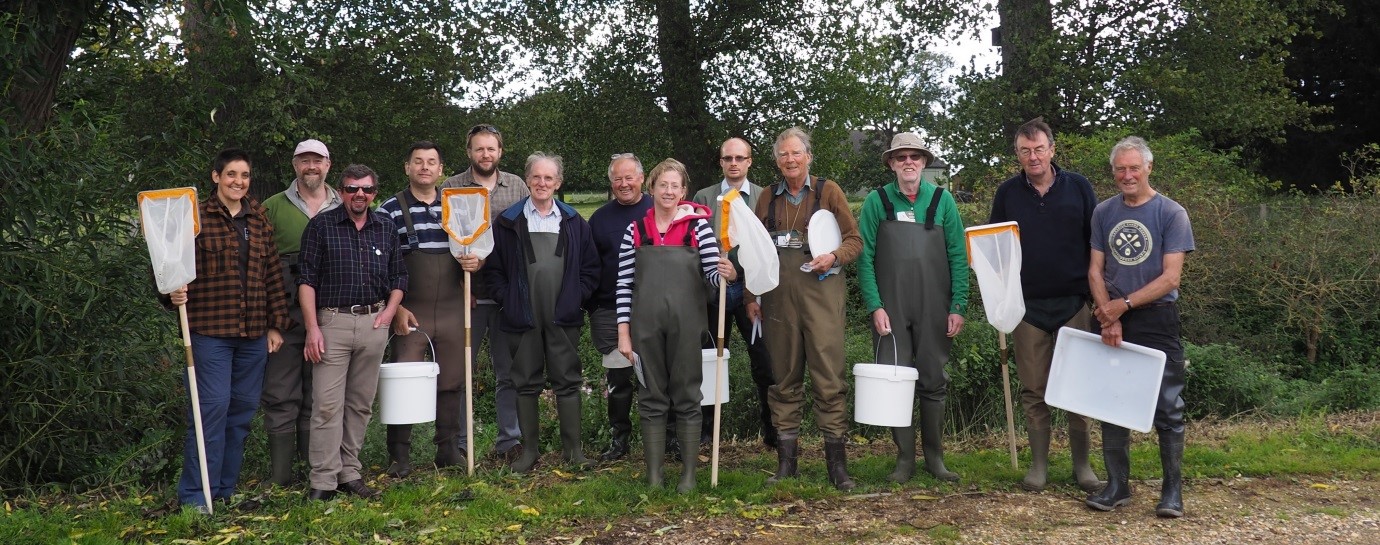
The Wildlife Trust for Bedfordshire, Cambridgeshire and Northamptonshire were awarded £7,950 towards their pilot project for Cambridgeshire River Wardens.
The pilot project took place along 11 miles of the Bourn Brook, a tributary of the River Cam, and on seven chalk streams / rivers in South Cambridgeshire. It focused on surveying the river to understand its overall health. The indicators of health for the Bourn Brook were populations of water vole and populations of invasive non-native species, which have a damaging impact on the brook. Indicators of health for the chalk streams were their invertebrate populations.
A number of surveys were completed by staff from the Wildlife Trust and their volunteers and found that populations of water vole along the Bourn Brook had improved and were looking healthy. The surveys also trialled a new way to record patch-size for the invasive non-native species Himalayan Balsam. The survey results indicated that the populations of several invasive non-native species had declined from previous years, with the decline in mink particularly being responsible for the improved water vole numbers.
The project used the data collected by the survey to also tackle some of the invasive non-native plant species found along the Bourn Brook. Volunteers provided an ‘eyes on the ground’ service to understand the presence of Himalayan Balsam upstream, attended events and put up posters about Himalayan Balsam. In total, 66 staff hours and 335 volunteer hours were used over 19 events to tackle Himalayan Balsam in the catchment.
The PEBBLE grant also allowed the Wildlife Trust to hold riverfly training events for their volunteers. The Riverfly Partnership works to encourage groups to monitor the health of their local river through monitoring of the riverflies. This ongoing monitoring can be useful in the early detection of river health declining. Picture shows Riverfly Volunteers and Wildlife Trust Staff (Photo by kind permission of Wildlife Trust BCN).
Picture shows Riverfly Volunteers and Wildlife Trust Staff (Photo by kind permission of Wildlife Trust BCN).